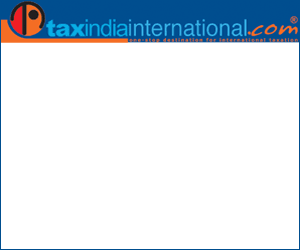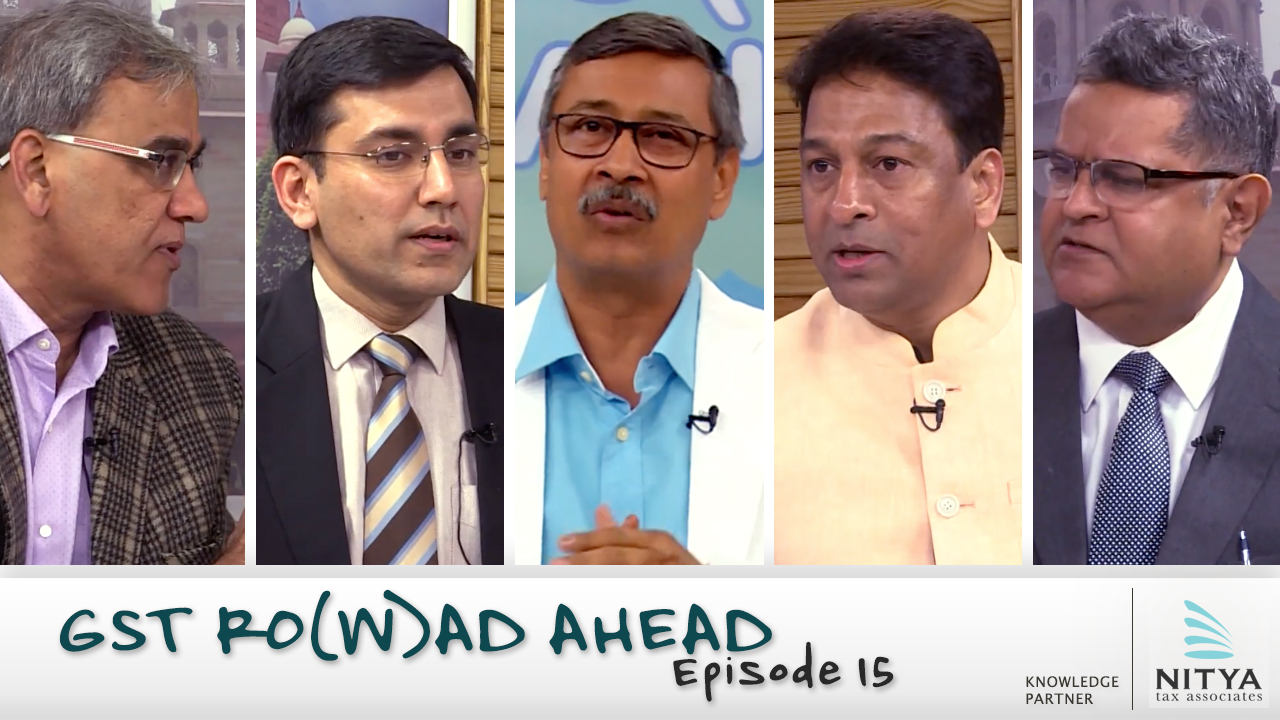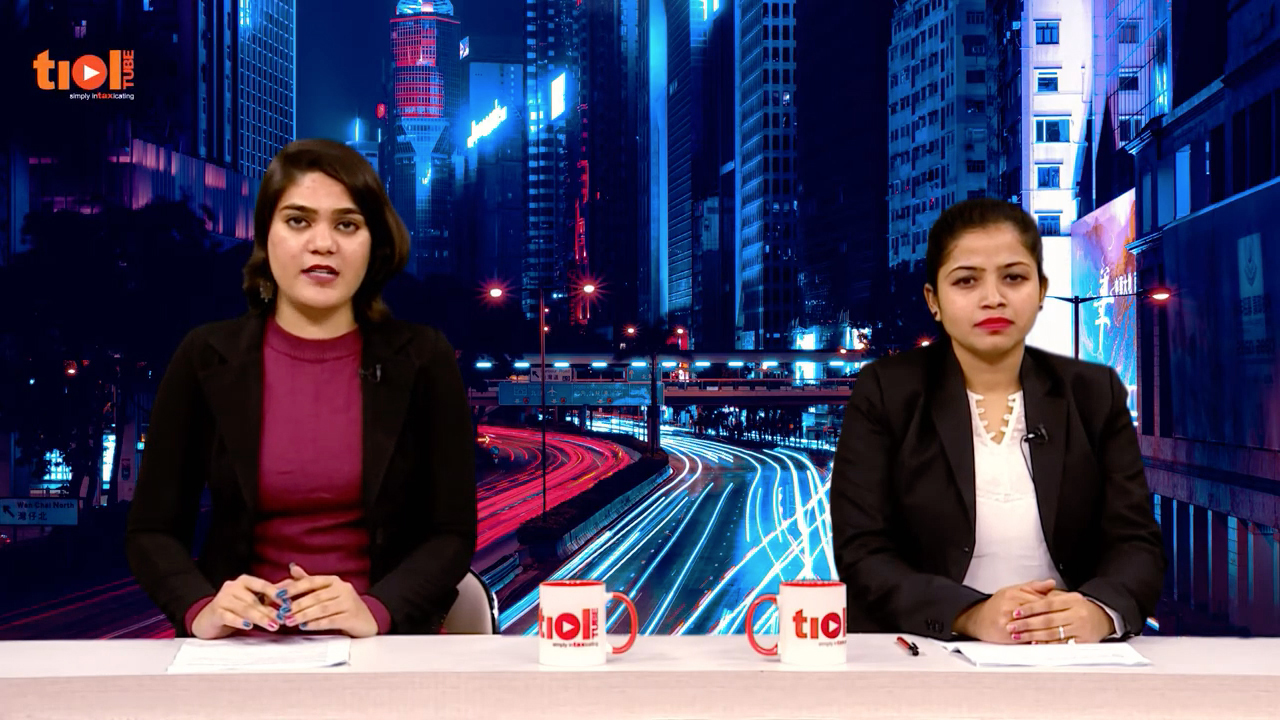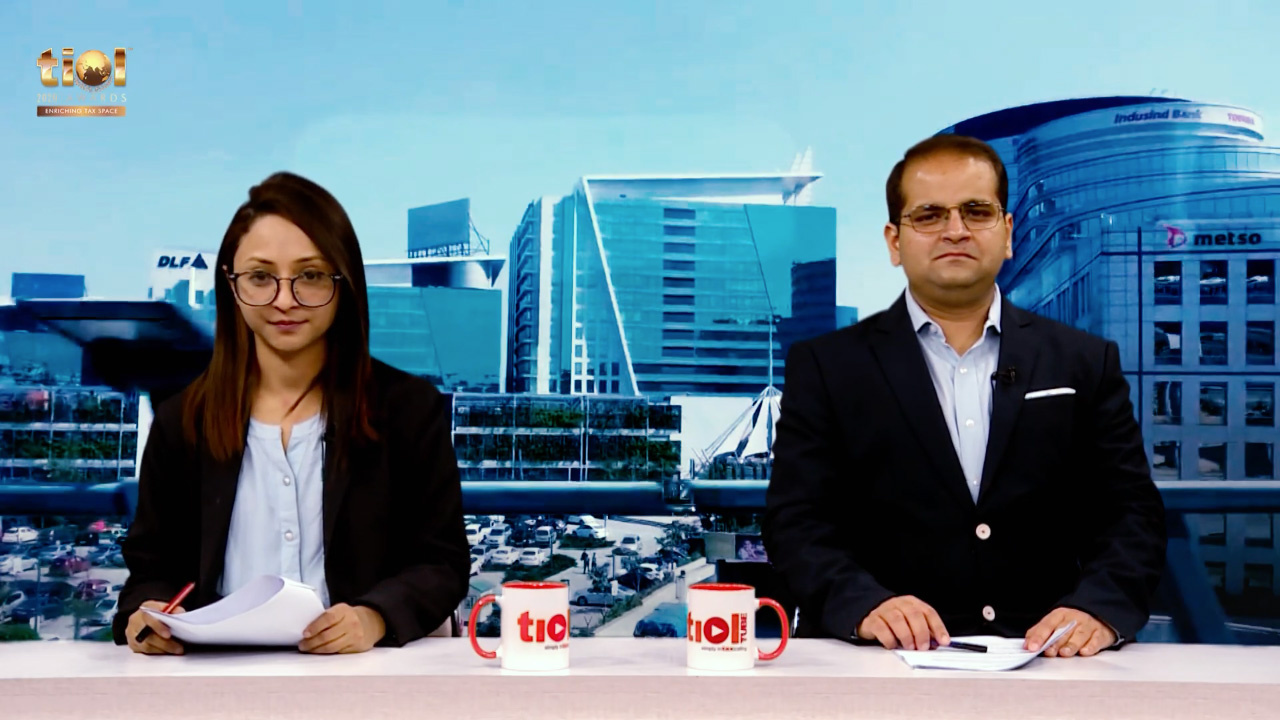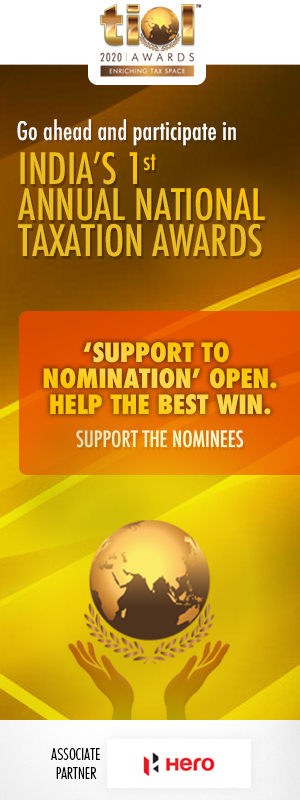|
SERVICE TAX
2020-TIOL-904-CESTAT-MAD
P Dhanalakshmi Vs Commissioner Of GST & CE
ST - Appellant is providing taxable services under the category of 'Renting of Immovable Property Services' – demand notice for recovery of service tax short paid – lower authorities confirmed the demand and imposed interest and penalties, hence appeal to CESTAT.
Held: Appellant has argued that she is a joint owner/co-owner of the property namely "Lakkshmi Arcade" along with her husband Shri. M.S. Paramasivam - On perusal of the sale deed dated 29.01.1992, it is seen that the property has been purchased jointly by the appellant and her husband Shri. M.S. Paramasivam - Lease agreements are entered into by both the appellant and her husband and which confirms that the appellant is not the absolute owner of the property "Lakkshmi Arcade" - The contention of the Department that in the land revenue records the name of the appellant alone is shown cannot be made the basis for confirmation of the demand, especially when there is no proof that the village records have been updated - It is not disputed that the income by way of rent is received by them separately and reflected in their income tax returns separately - When the property is owned jointly by the appellant and her husband, the demand of service tax raised on the appellant alone, therefore, cannot be sustained - appellant also contends that if the rent is shared between the appellant and her husband, they would come under the threshold limit, however, this aspect requires verification - If the rent received by the appellant separately is below the threshold limit during the disputed period, then the appellant would not be liable to pay service tax – Tribunal in the case of M/s. Sambhaji Pandurang Hulawale - 2017-TIOL-2748-CESTAT-MUM has held that the rent received by the co-owners cannot be clubbed together for raising the demand of service tax - matter remanded: CESTAT [par a6 to 9]
- Matter remanded: CHENNAI CESTAT
2020-TIOL-903-CESTAT-BANG
Ninan Jacob Associates Vs CCT & CE
ST - The assessee is registered under Service Tax for provision of services of 'Architect Service' and 'Works Contract' service from 2003 and 2009, respectively - Disputing the classifications made by assessee, Revenue issued a SCN covering a period 2005-06 to 2009-2010 classifying the services under 'Commercial Construction Service', 'Business Auxiliary Service', 'Renting of Immovable Property Service' and 'Architect Service' - The assessee have collected amounts from their clients for payment of statutory charges to Electricity Board, Municipal Corporation on behalf of the clients - Department has viewed this as 'Business Auxiliary Service' - In view of the decision of apex court in case of Intercontinental Consultants and Technocrats Pvt. Ltd. 2018-TIOL-76-SC-ST , no service has been rendered by assessee to their clients in relation to promotion of business or marketing of the goods - Therefore, demand on this count is also not sustained - Referring to the demand on 'Renting of Immovable Property' services, the assessee submits that going by Delhi High Court judgment in case of Home Solutions Retails (I) Ltd. 2011-TIOL-610-HC-DEL-ST-LB , tax is payable by them only after 23.9.2011 though the said decision is under challenge before Supreme Court - As the Service Tax stands paid, no reason found to sustain the demand - Referring to a small demand of Rs.1,573/-, assessee submits that the amount excluded by them while paying the duty under category of 'Architect' service was for the sale of tender forms and the same was not appreciated by the Commissioner - The assessee also submits that in case the tax paid by them could not be treated as payment of tax under category of 'Works Contract' service, the same may be refunded to them - However, Tribunal found that the assessee has correctly paid service tax under 'Works Contract' service, there would be no case for refund - All the demands raised, however, are not sustainable: CESTAT
- Appeal allowed: BANGALORE CESTAT
CENTRAL EXCISE
2020-TIOL-902-CESTAT-DEL
ARL Infratech Ltd Vs CE & ST
CX - The issue in this appeal is, whether the assessee, a manufacturer of Asbestos Cement Sheets, Asbestos Pressue Pipe and Glass Fiber Reinforced Plastic Pipes have correctly taken cenvat credit on the cost of transportation for clearance of their goods from the factory to the premises of their buyer - The assessee have led evidence by way of filing copy of invoices for the relevant period - It appears, that the assessee have charged transport charge separately in invoices and the same did not form part of the transaction values as defined under section 4 of Central Excise Act - The issue was debateable and there were divergent views of different Benches of the High Court and this Tribunal, and the said issue was finally settled by order of Supreme Court being order dated 01/02/2018 in the case of Ultra tech Ltd. 2018-TIOL-42-SC-CX - Accordingly, the present matter arising from the subsequent SCN on the same issue, the extended period of limitation is not available to Revenue, as there is no case of suppression made out - Admittedly, SCN states that same arises pursuant to audit - Similar SCN was issued previously also - Accordingly, assessee is liable to reverse cenvat credit only for the normal period of limitation which is July, 2012 to December, 2012 as the SCN is served on 18 July, 2013, and the assessee has filed return for the month of June 2012 on 9th July, 2012 - The penalty imposed is also set aside - The assessee is directed to file a calculation of amount they are required to reverse by way of Cenvat Credit before Original Adjudicating Authority and Commissioner shall verify the same: CESTAT
- Appeal partly allowed: DELHI CESTAT
2020-TIOL-901-CESTAT-DEL
Commissioner of CGST Vs Flex Food Ltd
CX - Rule 5 of CCR - Respondent is an EOU unit engaged in the manufacture and clearance of Freeze Dried Fruits, Culinary Herbs and spices for export as well as in DTA which carry nil rate of duty as per Central Excise Tariff – refund of unutilized Cenvat credit of service tax availed on input services claimed to have been used during the period October 2014 to December 2014, January 2015 to March 2015, April 2015 to June 2015 and July 2015 to August 2015 in the manufacture of goods was sought but the same was rejected on the ground that the refunds were not admissible as the goods exported and cleared in DTA carried "NIL" rate of tariff duty; that they were not entitled to take credit under Rule 6 read with rule 3 of the Cenvat Credit Rules; that the duty that was paid by the respondent under Section 3 of the Central Excise Act, 1944 as applicable to EOUs was a customs duty and hence it cannot be said that the products manufactured by the respondent was leviable to central excise duty – claim was denied by original authority but the Commissioner(A) allowed the appeal on the ground that in the case of the assessee-respondent, the Tribunal Single Member had allowed the previous appeal of the present respondent on the ground that at the time of availment of credit, no objection was raised that it was not entitled to avail Cenvat credit and, therefore, at the time of filing of the refund claim, the refund claim cannot be denied on the ground that Cenvat credit was not admissible – Aggrieved, with this order, Revenue is in appeal.
Held: Duty paid by the respondent at the time of clearance to DTA was duty of excise and, therefore, the goods cleared by the respondent cannot considered as exempted goods - Since 100% EOU have been given a different treatment for levy of duty, excisability of their products has to be determined from that perspective - The statutory provisions under Rule 2(d) of the Cenvat Credit Rules, 2004 do not speak of Tariff duty but the "duty of excise leviable thereon", which was undisputedly levied in the case of the respondent - Thus, even on merits, the appeal of the revenue is not sustainable: CESTAT [para 7]
CX - CENVAT - Tribunal has held in number of cases that the credit on photocopies cannot be denied, unless it is proved that they are not genuine - in case of any doubt, the Revenue was at liberty to verify the genuineness of the credit taken on the basis of the photocopies - impugned order-in-appeal does not suffer from any illegality, hence Revenue appeal is dismissed: CESTAT [para 9]
- Appeal dismissed: DELHI CESTAT
CUSTOMS
2020-TIOL-1072-HC-KERALA-CUS
CC Vs Konkan Storage Systems Kochi Pvt Ltd
Cus – S.150 of the Customs Act, 1962 - Chapter 21 of Central Board of Excise and Customs Manual very clearly says that for calculation of customs duty, the sale proceeds from the sale of unclaimed/uncleared goods is taken as cum-duty price (value + duty) and customs duty is calculated working backwards on the price realised - The above provision contained in the Manual has been further clarified in the CBEC Circular No.71/2001 dated 28.11.2001 extracted in paragraph 10 of the judgment in Union of India and others v. Associated Terminal Ltd.- 2020-TIOL-52-SC-CUS-LB - While clarifying on the backward calculation, the Circular (supra) further says that the total proceeds without allowing any deduction towards sale expenses or any other charge is to be taken as cum-duty price, which will be Rs.5,00,00,001/- in the case on hand - The clarification further says that after determination of the customs duty in such manner, the sale proceeds have to be appropriated in the manner provided in Section 150(2) of the Act - In the light of the above factual position, as clearly stated by the department itself, there can be no further doubt regarding the manner in which the customs duty has to be arrived at in case of sale of uncleared goods - In the case on hand, admittedly, the customs duty has not been arrived by following the cum-duty method - The finding of the Tribunal on the above question cannot, therefore, be faulted in any manner: High Court [para 16]
Cus - On the question whether the interest on customs duty can have precedence over the right of the warehouse keeper, Section 150 of the Act clearly says that the expenses of sale, expenses towards freight and other charges in respect of the goods sold and the customs duty on the goods sold will have precedence over the charges in respect of the goods sold which are due to the person having custody of the goods - The Section does not speak about interest on customs duty - A strict interpretation of the words used in the Section 150 does not, hence, allow any precedence for claim for interest on customs duty over the warehousing charges or rent: High Court [para 17]
Cus - It can be seen from the clarification F. No. 473/94/89-Cus. VIII dated 22.05.1990 that the Department itself has understood the provision in Section 150 of Customs Act, 1962, to mean that the interest on customs duty cannot take precedence over rent and other claims of the warehouse keeper - The CBEC clarification F. No. 473/94/89-Cus. VIII has been issued as early as on 22.05.1990 and is very much in accordance with the language of Section 150 - The order of precedence contained in Section 150(2) does not leave any room for doubt - Since the amount is received as a result of a public sale, the first priority is given as per Section 150(2)(a) to the expenses for sale; the second priority is given, as per Section 150(2)(b) to the expenses that were incurred prior to the goods coming into custody of the warehouse keeper, ie. Freight etc.; the third priority is to the State for its claim towards Customs Duty as can be seen from Section 150(2)(c); the fourth priority is for the dues to the warehouse keeper in the form of rent and charges as is seen from Section 150(2)(d) - What is most relevant is Section 150(2)(e), which says that after the claim under Sub clause 2(d), the next priority is for the payment of any amount due from the owner of the goods to the Central Government under the provisions of this Act or any other law relating to customs - Any claim, other than customs duty, which comes under sub rule (2)(c), under the Act, can be settled only after the claim under Section 150(2)(d) is settled - In the opinion of the Bench, the claim for interest can come only under Section 150(2)(e) - even without the aid of the above clarification, Section 150 can be understood only to mean that interest on customs duty cannot have precedence over the charges and rent due to the warehouse keeper - The clarification dated 22.05.1990 is to be treated as a contemporaneous exposition - It is well settled that the principle of contemporanea expositio is a principle which can be applied while interpreting a provision of a Statute - interest on customs duty does not have precedence over the warehousing charges and rent – Revenue appeal fails and is dismissed: High Court [para 18 to 21] - Appeal dismissed :
KERALA
HIGH COURT 2020-TIOL-1071-HC-MAD-CUS
R Arul Selvan Vs ACC
Cus - Petitioner seeks a direction to the respondent not to harass the petitioner by considering his representation dated 12.12.2019; that the respondent had harassed the petitioner under the guise of enquiry and hence, has invoked the inherent powers of this Court under Section 482 of Cr.P.C.
Held: An enquiry into a non cognizable offence or a cognizable offence is the unfettered powers of the Investigation Officers so long as the power to investigate/enquire into these offences are legitimately exercised within the frame work of Chapter XII of the Code of Criminal Procedure - Court, exercising its power under Section 482 of the Criminal Procedure Code normally would not interfere with the investigation conducted by a investigating officer - Nevertheless, it would also not turn a blind eye to instances of harassment by the police under the guise of investigation is brought to its notice - The term 'harassment', by itself, has a very wide meaning and hence, what could be harassment to the petitioner may not be the same to the investigating officer - In order to circumvent such situations, the following guidelines are issued viz. (a) While summoning any person named in the complaint or any witness to the incident complained of, the investigating officer shall summon such person through a written summon under Section 160 Cr.P.C., specifying a particular date and time for appearing before them for such an enquiry/investigation; (b) The minutes of the enquiry shall be recorded in the general diary/station diary/daily diary of the investigating office;(c) The investigating officer shall refrain himself or herself from harassing persons called upon for enquiry/investigation, and, (d) The guidelines stipulated for preliminary enquiry or registration of FIR by the Hon'ble Supreme Court in Lalita Kumari = 2013-TIOL-63-SC-MISC-CB shall be strictly adhered to - Criminal Original Petition stands disposed of: High Court [para 7 to 9] - Petition disposed of : MADRAS HIGH COURT
2020-TIOL-900-CESTAT-KOL
Joy International Vs CC
Cus - The assessee filed a SAD refund on the sale of goods imported - Same was sanctioned however, the same was taken up for scrutiny by Department wherein it is revealed that the Chartered Accountant Certificate which was required to be submitted along with claim of refund in terms of Notfn 102/2007-Cus. was issued after the death of said Chartered Accountant - The reliance was also placed on CBEC Circular 06/2008-Cus. , wherein it is clarify that importer may submit a certificate from Statutory Auditor/Chartered Accountant certifying that the contention laid down in Notfn 102/2007 is satisfied - Department therefore raised the demand for recovery of said refund sanction which was confirmed and upheld in the impugned order - The assessee submitted that the Department has issued the refund sanctioned Order which cannot be re-opened unless and until the Order is reviewed under Provisions of Customs Act, which in any case has not been done - It is also submitted that a fresh certificate has been submitted by another Chartered Accountant as per both Circular - The assessee placed ignorance about the death of earlier Chartered Accountant on 15/03/2014 and one of their employees has obtained such certificate - Accordingly, he has prayed for remanding of matter back to the Adjudicating Authority to consider new certificate issued by another Chartered Accountant - It is also the fact that the refund was sanctioned by Refund Sanctioned Authority which was not reviewed and fresh SCN was issued for recovery of the refund sanctioned - However, since the request of assessee is only for remand - It is fair to the both assessee and Department to have a re-look of Chartered Accountant Certificate and deal with the issue as per law: CESTAT
- Matter remanded: KOLKATA CESTAT |
|


